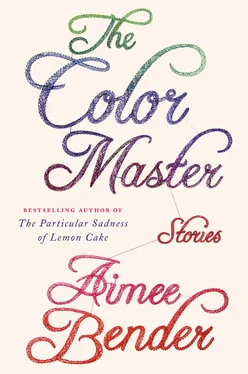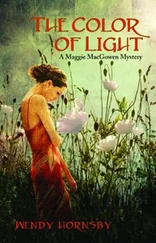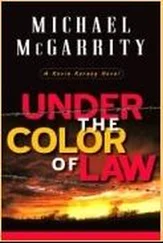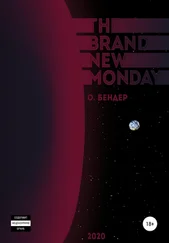One afternoon, while on his drive to the recycling plant, Hank glanced down at the radio during a song he didn’t like and hit a doctor. The doctor, a young surgeon just finishing his residency, was crossing the road on a sunny afternoon on his lunch break, and he stepped into the street right when Hank was spinning the tuning dial. Hank knocked him to the ground, and the tires rolled over his hands. The doctor who had specialized in surgery for children with cancer.
Arlene did not appreciate my line of thinking.
“You cannot make an equation!” she said, coming out of the bathroom. “The doctor’s hands did not break because Hank was recycling!”
She adjusted the ribbon on her dress that she was wearing as a gesture of support for Hank, who was meeting that day with a lawyer.
“True,” I said, flicking on the light that she always flicked off, even when we were studying. “And yet, if Hank did not feel the need to drive his bags to the plant, then the doctor would be fine. Correct?”
“That’s fudging the data!” Arlene protested.
The doorbell rang. Fred came in. He was looking particularly strong and flushed that evening, having just finished lifting weights at the gym.
“It’s just so sad,” I said. “He saved children.”
“It’s horribly sad,” Arlene said. “But it is not a lesson. Hey, baby.” She turned away from me and leaned in to give Fred a kiss.
“Or how about the Litmans?” I said.
The Litmans were the liberal parents of a mutual friend of ours who had adopted a homeless kid with no family and raised him with love and care and good limits and kind gifts and progressive schools, and the kid had grown up to be a staunch ultra-right neo-con who believed in torture and wiretapping civilians and aggressive, preemptive warfare. The parents did not know what to do.
Arlene began to rub Fred’s shoulders. “Did you go to the gym?” she said. “You look hot.”
“Nice dress,” he said.
“Anyway,” she said to me. “You can’t predict the outcome. You can’t raise a kid and then tell him what to think.”
“No,” I said. “I’m just saying.”
“You’re saying we should all stay at home and do nothing,” she said.
“Claire’s not a shut-in,” Fred said, smiling at me.
“See?” I said, smiling back, although Arlene’s statement did sound a little true.
“What happened with Hank and the lawyer?” he asked.
“I don’t know,” Arlene said. “He’s still not back.” She held on to the sides of his T-shirt. Her eyes filled with real tears. Fred kissed the top of her head tenderly, and for the umpteenth time, I wondered how Arlene, of the questionably toxic perms and mascara drips and yogurt cup righteousness, always got the better guys.
“He has to live with that his whole life,” she said.
Fred ran a hand through her hair. They left, to go to dinner.
“I hate you people,” I muttered as I shoved my eggshells into our small kitchen compost pile, which smelled like rotten food, which is just exactly what it was.
The building quieted around me. Saturday night. I had nothing to do. The latest guy I’d liked, a documentary filmmaker, had to work late in the editing room. I loved documentaries, but he said I couldn’t see his for two more months, and, like a sports star, he said it was better that he work solo and think solo until he was done. Due to dating choices such as this, I seemed to have more time than most of my peers, so I had pursued an addiction to crossword puzzles. When not studying, I opened up the newspaper and did the daily one each afternoon. I was not particularly good, and often could not answer the questions. I grabbed a pencil and curled up on the sofa and opened the newspaper to the puzzle I’d started the night before. As I worked away, rereading the same clues, two thoughts commonly accompanied my work. One was my strong desire to finish as quickly as possible so I could do something else, who knew what. But finishing quickly was impossible, so I also found myself thinking that if someday I were taken by a dictatorship and shoved into a holding tank with only this crossword, and my only chance for survival was to finish this crossword, then and only then might I be able to figure out the answer to 12D: Lincoln’s controversial Cabinet member. Maybe it would take years, I considered, skipping that question, but as I continued to work the puzzle, I could feel that holding tank floating in the background, an Orwellian-style setup with a large crossword projected onto the wall as the world warred outside, and for some reason the future of humanity might even depend on whether or not I could plumb the depths of old history tests in my memory, and rustle up the answers.
Maybe then, I thought to myself, primly, I could finish.
I did the crossword for a while, made a tiny bit of progress by asserting that Plato was Greek, and then wandered out onto campus. I didn’t feel like seeing the new movie or going to the new specialty-beer bar that had just opened up across the street.
Instead, I found myself pulled to the main quad of campus, an area of green that, with spring, was only just starting to lighten and brighten from beneath the layers of cold, dark wetness. Some kind of vigil was going on. Rows and rows of students were sitting with candles, wearing gloves and hats. It was colder than I’d expected. I was shivering in my coat and scarf, and Julian, the documentary maker, was tucked warm in a dark room with technology, and Arlene and Fred were going to “dinner,” which often meant they were just waiting for me to leave so they could return to the apartment and have loud sex. Twice I’d come home as they were finishing, and, honestly, I cannot think of a lonelier sound on a Saturday night than one’s roommate having a giant orgasm and then making an embarrassed sssh sound, realizing that maybe through the fog of her pleasure she’d heard the front door open and close.
So there I was, at this vigil. I knelt down. A man on a podium was talking.
“What’s it for?” I whispered to two women wrapped up together in a bright-blue sleeping bag.
“The war,” they said.
“Which one?”
“All of them,” they said.
“How many are there?” I said.
One shrugged. “At least three.”
I tried to count the wars in my head. I could count two.
“What’s the third?” I hissed.
“Sssh!” said the sleeping-bag pair, in unison.
“So,” said the man at the podium, a man with a beard and a knit cap, “as murderers, we too should be punished. Look around! Look harder! Look at what you’re not seeing!”
“Why are we murderers?” I whispered to the two.
“Duh,” said one.
“It’s a wake-up call,” said the other. “Most of us forget we’re even at war at all.”
I nodded. In fact, I could hardly hold the thought about forgetting in my head. It seemed destined to be forgotten.
“Brring!” said the man at the podium. “I am your inner alarm clock. Brrring!”
The group rose to its feet and began marching, with candles, down the main walkway of campus. The duo, bundled in their sleeping bag, moved in a lump ahead of me. I began walking too. I knew no one in the war/wars and hardly thought about them, and when I did, I wore the guilt and outrage like an accessory I could remove the same way as a nice pair of earrings. I would let the outrage adorn and better me and then slide the wires from my earlobes and tuck them away in my jewelry box. I felt ashamed of this even as I did it over and over, and one could reasonably argue that the fact that I felt ashamed about it and still did it made it worse. At least the Litman kid had beliefs.
We walked in clumps, heads leaning forward. Was there a group plan? Should I call my one journalism friend? But more than anything, I was pulled by the movement of something happening, something where I could join a flow and participate in some way without notice.
Читать дальше












